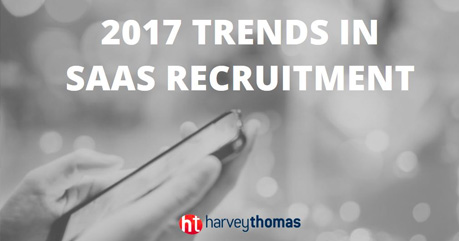The rapid growth of AI across industries has fuelled an unprecedented demand for experienced talent.
This increasing demand for AI talent has resulted in a significant shortage of AI professionals, which is a challenge that is set to intensify as we work our way through 2025.
A recent McKinsey report suggests the largest gaps are seen in hiring AI data scientists, machine learning engineers and data engineers, with AI data Scientists being highlighted specifically as being in high demand in the year ahead.
The Escalating Demand for AI Professionals
The seemingly extraordinary potential of AI has prompted businesses large and small to integrate AI technologies into their day to day operations.
This has heightened the need to recruit experienced professionals to properly harness the power of AI, but it is predicted that the demand for AI talent will continue to outpace supply.
With more than three quarters of businesses now using AI in at least one area, the widespread adoption of AI tools and solutions will only intensify the competition for talent , making it increasingly difficult for companies to secure and retain top AI professionals.
Implications of the AI Talent Shortage
The shortage of AI professionals is not just a hiring challenge, it is also a major risk to any business and is only set to worsen with many AI professionals leaving the UK and Europe for higher paid opportunities abroad
Here’s how the AI talent shortage is affecting businesses
• Delayed AI projects – Without the necessary expertise, both internal and external AI projects could face significant delays leading to bottlenecks and unhappy customers
• Increased Hiring Costs – When skills are in high demand but in short supply, salaries tend to inflate and companies not able to compete will lose top talent to the ones that can.
• Reliance on external suppliers – With internal AI teams understaffed, companies have no choice but to look towards external consultancies and vendors to support AI initiatives.
• Challenges with AI compliance and Ethics – There is an even bigger shortage of AI specialists in this area, which could lead to a host of issues arising from not having proper AI governance.
• Reduced Productivity and missed opportunity – With a reduced AI talent pool, businesses struggle to scale AI projects leading to efficiency issues and potentially profitability.
Proactive hiring Strategies
In order to address the progressive shortage of AI talent, companies must look to pivot their hiring strategy from a reactive one to a proactive one.
Simply trying to secure talent once the need, as in a reactive strategy, will simply not be effective when there is a talent shortage.
A reactive hiring strategy, particularly when considering roles in AI, will only lead to delayed projects, poor candidate quality and increased recruitment costs.
A proactive hiring strategy involves actively identifying, engaging with and nurturing your prospective future AI hires in readiness for any eventuality, be it replacing a leaver, hiring for a project, or even a pre-emptive hire when there is a hard to find skillset.
This approach ensures a steady pipeline of qualified candidates, reducing time to hire and improving quality and retention.
To succeed, companies will have to stop relying on last minute hiring and adopt a longer term AI talent strategy, buy building their own Private AI talent network, engaging and nurturing AI professionals before hiring needs arise.
By establishing a curated AI private talent network, companies will be able to:
• Engage AI professionals before needs arise
• Be alerted when a candidate becomes active – beating the competition
• Reduce hiring costs associated with traditional recruitment methods
• Ensure AI projects stay on track leading to happy customers
Final Thoughts
The AI talent shortage is not a future problem, or a short term one, it’s already here and is here to stay.
Businesses must act now to ensure they are able to secure the AI talent they need, to innovate and ultimately compete.
Waiting until a role goes live is no longer an option and companies that build long term AI hiring strategies including private talent networks will be the ones leading in AI innovation.


